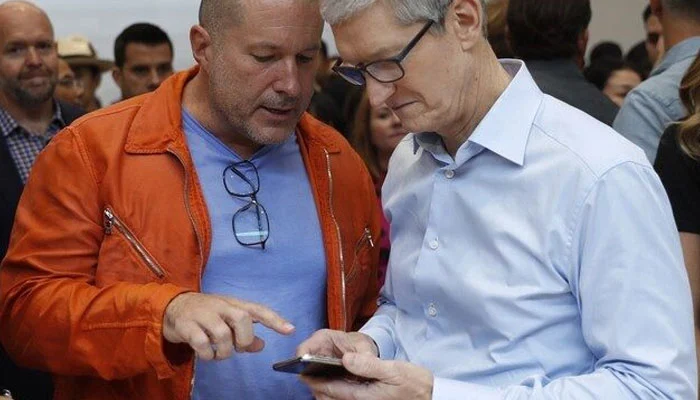Jony Ive, the acclaimed designer behind Apple’s iPhone, has now joined OpenAI with the objective of creating devices specifically engineered for leveraging generative artificial intelligence. This announcement was made through a video posted on Wednesday by the developer of ChatGPT. Ive and his team will assume leadership of design operations at OpenAI as part of the acquisition of his startup, “IO,” a transaction valued at $6.5 billion.
In the video, OpenAI chief executive Sam Altman, without divulging specifics, stated that a prototype Ive had shared with him “is the coolest piece of technology that the world will have ever seen.” The San Francisco-based AI company concluded the clip with a message expressing its anticipation of showcasing the results of this device collaboration next year.
British-born Ive was an employee of Apple from 1992 to 2019, a period during which he oversaw the development of the brand’s now-iconic products, ranging from the iMac and AirPods to the iPod, iPhone, and Apple Watch. Working in close collaboration with Apple co-founder Steve Jobs, his designs revitalized Apple, propelling it to become the company with the world’s third-largest market capitalization and establishing a global benchmark for product design.
Altman asserted that a transformative new technology like AI merits a revolutionary new method of interaction. Comparing AI to “magic intelligence,” Altman conveyed that the technology powering ChatGPT “deserves something much better” than merely typing questions into a laptop.
Ive initiated his collaboration with Altman two years ago, and it “became clear that our ambitions to develop, engineer and manufacture a new family of products demanded an entirely new company,” the duo stated in a joint post. Ive remarked, “The products that we’re using to deliver and connect us to unimaginable technology are decades old.” He added, “So it’s just common sense to at least think, surely there’s something beyond these legacy products.”
Challenging Smartphone Dominance?
OpenAI’s move to integrate its popular chatbot into a novel type of gadget could pose a threat to Apple, which has encountered difficulties with its AI strategy, particularly in enhancing the intelligence of its Siri digital assistant. Apple shares experienced a nearly three percent decline in after-market trading on Wednesday. Almost a year after announcing the integration of various generative AI functionalities into its new iPhone 16, Apple has been slow in their implementation. The Cupertino, California-based corporation has also, at best, postponed the release of an updated version of its Siri voice assistant until next year.
The race to embed generative AI into devices also includes Amazon, which is currently in the process of rolling out the technology to its Alexa voice assistant. Dubbed Alexa+ and enhanced with AI, Amazon’s adoption of this technology is primarily intended for connected devices within the home, such as smart speakers or televisions.
In 2024, the highly anticipated startup Humane launched its AI Pin, a square-shaped gadget designed to be worn like a brooch, theoretically capable of responding to spoken queries, capturing photos, and making phone calls. However, it rapidly failed to gain traction due to its high price and suboptimal performance, and was subsequently acquired at a low price by HP.
Roger Beharry Lall, research director for IDC advertising and marketing technology, commented that it remains to be seen whether a gadget specifically dedicated to utilizing AI can dethrone smartphones, which continue to dominate modern lifestyles. Beharry Lall stated, “Right now, the phone is the medium through which you can access these technologies.” He concluded, “If anyone can figure out what the next-generation interface is going to look like, it’s probably Mr. Ive.” OpenAI has emerged as one of the most successful companies in Silicon Valley, propelled to prominence in 2022 with the introduction of ChatGPT, its generative AI chatbot.



